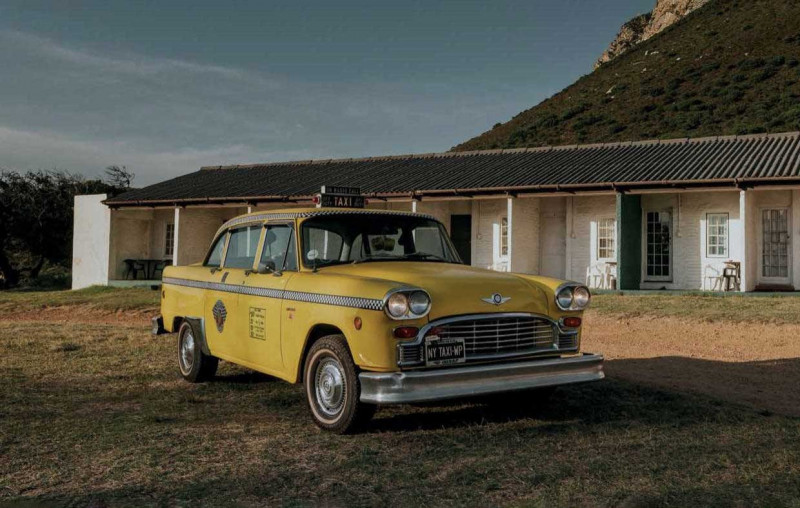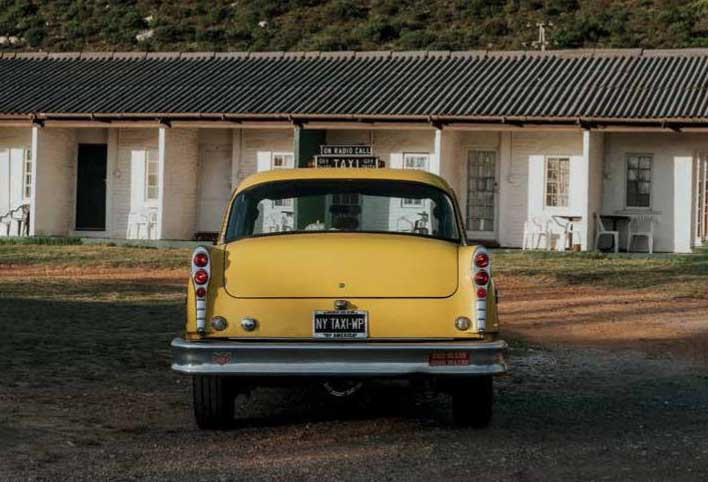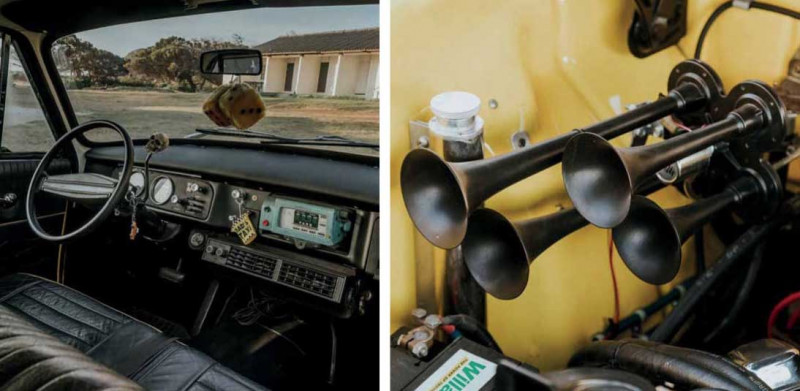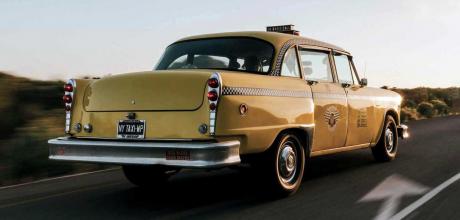1976 CMC A11 Checker Taxi
For decades, Checker Taxis defined New York streets. One enthusiast has coveted one since the age of 11 and fulfilled that dream.
CLASSIC DRIVE NYC on wheels: Checker Taxi
NYC ON WHEELS
It is huge. In pictures, with no-one standing next to the typical Checker Taxi, you may think it is the size of a standard four-door sedan, but it is much longer, wider and taller. Its sole purpose was to offer passengers comfort with an abundance of space, for themselves and their luggage. This piece of East Coast American history is deceptively large.

The vehicle is owned by Dieter Losskarn, a motoring enthusiast, motor and travel writer and content creator for GQ Magazine and his online publication LossKARn. He took me through the history of Checker Taxis and its founder with numerous books, folders and pictures. “It all started in 1922 with a Russian immigrant. They stopped producing cars in 1982. My car is one produced between 1958 and 1982. The body of the taxi was never changed for this entire era. They did upgrade the rest of the car, though, which is why I wanted a Seventies model. It has power brakes and power steering, for example.

“Interestingly, this specific taxi was used as an undercover police vehicle at the drug enforcement division. The car was ordered with the optional 5,7-litre Chevrolet V8, while most taxi owners had the smaller 6-cylinder unit. Because it was an undercover car, the mileage is relatively low. I bought the car in America in 1999 with just 90 000 miles (145 000 km) on the odo; some others on the market had well over 1 000 000 miles (1 600 000 km).”
The manufacturer released civilian versions called the Marathon. The VIN numbers start with A12, while real Taxis ’VIN numbers start with A11.
Losskarn recalls, “When I was 11, I saw a Checker Taxi in a movie and told my dad that was the car I wanted to own one day. I remember saying it had friendly eyes. I searched for nine years. I initially went over to New York in 1990, but finally found this example in 1999.”

“After I bought it, I drove it through nearly 50 states in America, on three different trips, covering 15 000 km.” Dieter pulls out a hardbound book he wrote about the trip, perfectly encapsulating what has arguably been one of the best experiences of his life. Thankfully, a publisher saw the value of the trip and the book was sold to the public. “Because of my history with the vehicle, it is not just a classic car to me … it sounds funny, it is almost like my friend.” It still has the original engine, but has had a few upgrades. “It now has an Edelbrock manifold and a set of Holley carburettors so it breathes a little better.”
There is nothing flimsy about it. From the moment you open the solid door, you are met with that spacious interior. I took up position behind the steering wheel on the front bench. Ahead of me was the long, wide and rounded bonnet, replete with the chrome strip along the top towards the front headlight. I glanced behind me and there is oodles of room for three adults on the rear pew and another two adults on the pull-out chairs.
I turned the key and immediately the deep burble from the Chevrolet V8 engine started. The column shifter slipped easily into drive and a prod of throttle enabled the taxi to pick up speed. It might be cumbersome, but the three-speed transmission makes the most of the available torque. Before long, we were up to 100 km/h. There is no rev counter. That would have been of little use anyway. To the right, the original taxi meter takes pride of place.
This is a time machine. It transported me back to the Big Apple as I contemplated the stories this taxi could tell about its many passengers. The power steering makes it a breeze to pilot. There is no better car to load up a few friends and head off on an extended road trip. Everyone smiles when they see it drive past. Dieter admits it has been like that since day one.
We opened the huge boot lid. The spare wheel cover features a cloth material with a New York landscape and a Checker Taxi. “During my USA road trip, a guy approached me, saying ‘my’ car was pictured on his curtains. He gifted me some spare material and I had this cover made,” explains Dieter.
As it sports a Chevrolet engine, sourcing parts is fairly easy. When we opened the bonnet, I noticed an air horn, complete with a compressor in the boot. Dieter admits this was installed later to be sure certain vehicles on the road hear him when he presses the horn. As we parked the Checker, I chuckled as I spotted the “God bless John Wayne” sticker, so apt on this car. But there was one last little surprise that Dieter wanted to show me. In his book is a yellowed piece of paper: his original taxi driver’s licence from Germany from the 1980s.
TECHNICAL DATA 1976 CMC A11 Checker Taxi
- Engine: 5,7-litre, V8 petrol
- Transmission: 3-speed automatic, RWD
- Max Power: 223 kW @ 4 800 r/min
- Max Torque: 515 N.m @ 3 200 r/min
- Top speed: 165 km/h
- Compression ratio: 10.2:1
- Fuel consumption: >18 L /100 km
- Fuel tank: 87 litres
- Weight: >1 740 kg
- Manufactured: 1958-1982
01 Unlike anything else on the road, and with some real presence. 02 Column shift gear lever. 03 Front bench makes for a relaxed driving position. 04 Only analogue dials in the cabin.
01 It is notably bigger than you think. 02 Front bumper purposely strong. 03 Plump tyres with chrome caps. 04 Beautifully covered spare wheel. 05 V8 engine offers welcome low-down torque. 06 The object of so many American movies over the decades.
07 Louder than your average horn.
08 Spacious cabin including the period-correct taxi meters.


